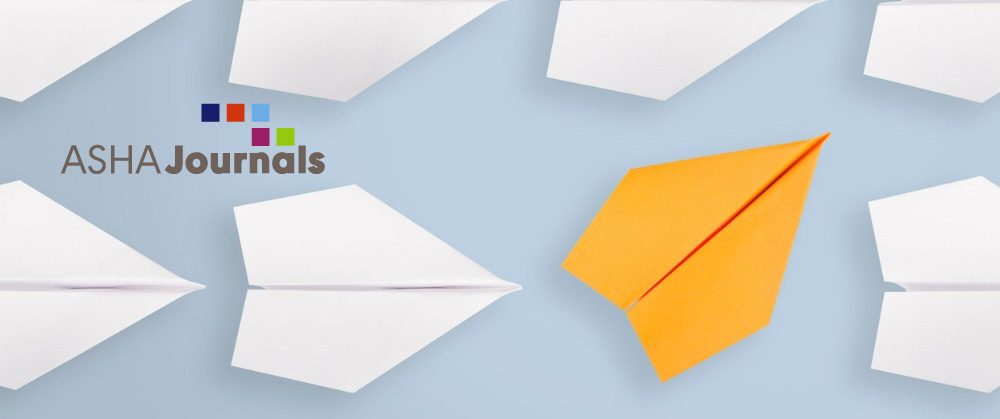At the ASHA journals, we strive to stay up to date with the latest trends in research. It’s with that goal in mind that we’re happy to present the latest option for authors looking to publish in the Journal of Speech, Language, and Hearing Research (JSLHR): Registered reports.
What’s a Registered Report?
A registered report is a new article type that involves a multi-stage review process. First, reviewers perform an initial peer review of a Stage 1 manuscript (consisting of the introduction, methods, and any pilot data) before the start of data collection. If a Stage 1 manuscript is accepted in principle, the authors are asked to register the report on a registry (e.g., ClinicalTrials.gov, Open Society Foundation [OSF]) and proceed to conduct the study, complete data analyses, and write up the results. The journal will commit to publishing the results regardless of the outcome, as long as the final study conforms to the initially approved proposal and meets all quality checks.
Senior Editors for Registered Reports Holly Storkel and Frederick Gallun explain more about the process in an editorial in JSLHR. They write that reviewers and authors “agree in advance that the experimental design is solid, the questions are interesting, and the results will be publishable regardless of the outcome” (Storkel & Gallun, 2022, p. 1). This, in turn, allows researchers who end up with null results or who replicate findings from previous research to still see their work in print. “In fact, null results and replication studies are critical, because they help us understand what effects occur under what conditions” (Storkel & Gallun, 2022, p. 2).
Solving Problems in Publishing
Storkel and Gallun write that the registered reports process solves key problems for authors. Intentional or otherwise, current publication processes favor articles with unexpected or paradigm-shifting results. Because of that, researchers may feel internal or external pressure to “tell a story” in their research. This may, in turn, lead to questionable research practices. When we get both sides to agree to publish a paper before any results are available, we ensure that we are publishing ethical research.
Authors who submit registered reports also have a unique advantage in that they can receive peer review on their planned study. Comments from peer reviewers can improve research methods and can catch any number of issues before the study gets underway.
How Do I Submit a Registered Report?
Authors submit a registered report to JSLHR in multiple stages, which we outline below. For additional details on each stage of the proposal, see the “Registered Report” section of the ASHA Journals Academy.
Stage 0: Initial Proposal
We strongly encourage authors to submit an initial proposal. In doing so, they ensure that the study is appropriate for the registered reports article type. We send the initial proposal directly to one of our senior editors, who then reviews it. Although this step is not required, it gives authors a unique chance to communicate directly with a senior editor ahead of the process.
Stage 1: Initial Manuscript Submission
At this stage, we ask the corresponding author to submit some of the information that will later be used in the final manuscript. After conducting an initial screening, we then send the information to peer reviewers, and the authors may receive what is known as in-principle acceptance.
Stage 2: Full Manuscript Review
Once the authors have carried out their research, then they use that research to write the rest of the manuscript, agreeing to not fundamentally change the sections that they’ve already submitted. Ideally, we send this full manuscript to the same peer reviewers whom we used from Stage 1, who will make a recommendation (i.e., accept, reject, revise/resubmit) to one of the senior editors.
A Final Word From Our Senior Editors
Storkel and Gallun sum up the importance of registered reports in their editorial.
We hope that you’re as excited for the advent of registered reports in JSLHR! Don’t forget to read Storkel and Gallun’s editorial—you can find out more about registered reports elsewhere on the ASHA Journals Academy.
References
Storkel, H. L., & Gallun, F. J. (2022). Announcing a new registered report article type at the Journal of Speech, Language, and Hearing Research. Journal of Speech, Language, and Hearing Research, 65(1), 1–4. https://doi.org/10.1044/2021_JSLHR-21-00513









